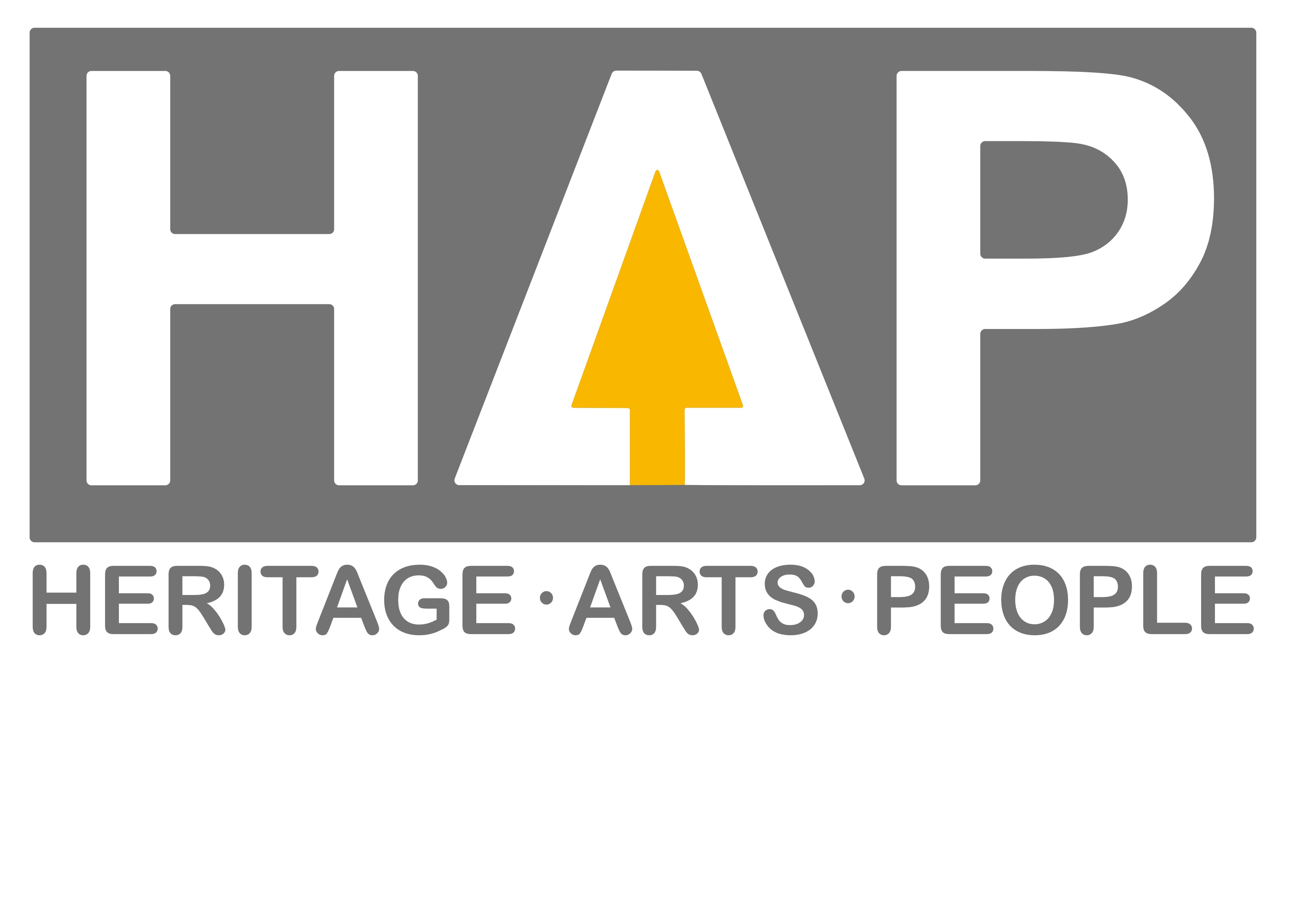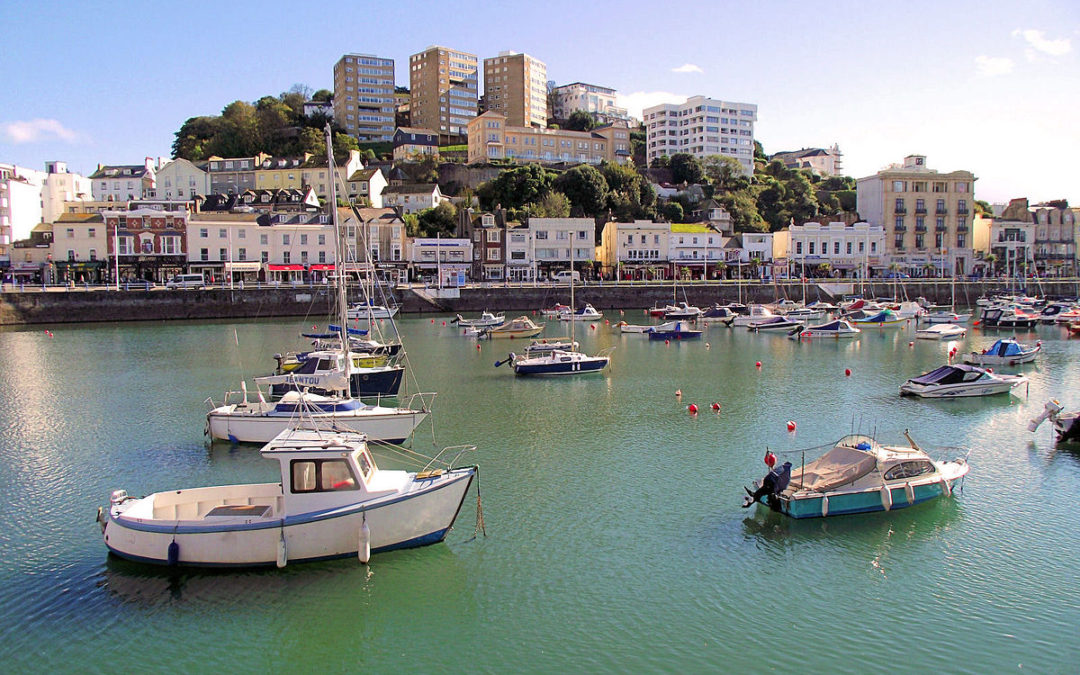
News, Torbay
We’re delighted to announce that HAP has been appointed to produce a new five year Heritage Strategy for Torbay. We will carry out the work between now and May 2020 on behalf of Torbay Council, TDA and Torbay Culture.
The previous Torbay Heritage Strategy dates from 2011. It was not formally adopted by Torbay Council and has not been reviewed since creation. Since that date numerous changes have impacted the culture and heritage sector; there also have been significant political changes locally and nationally, and cultural developments on the ground in the bay. The Council is now keen to see that specific issues relating to heritage – both built and natural – are reviewed, and an action plan is formed.
Torbay is home to heritage treasures of local, national and international significance, from the earliest modern human remains in northern Europe to the elegant home of Agatha Christie. However, as the area emerges from decades of economic decline, many of its heritage assets are in danger, both from existing deterioration and future risks of climate change. The Torbay Heritage Strategy will be a vital tool in helping multiple local agencies and stakeholders to meet these challenges and make the most of the area’s outstanding heritage.
Our lead heritage consultant on this project is Katherine Findlay. To find out more, please email katherine@heritageartspeople.uk
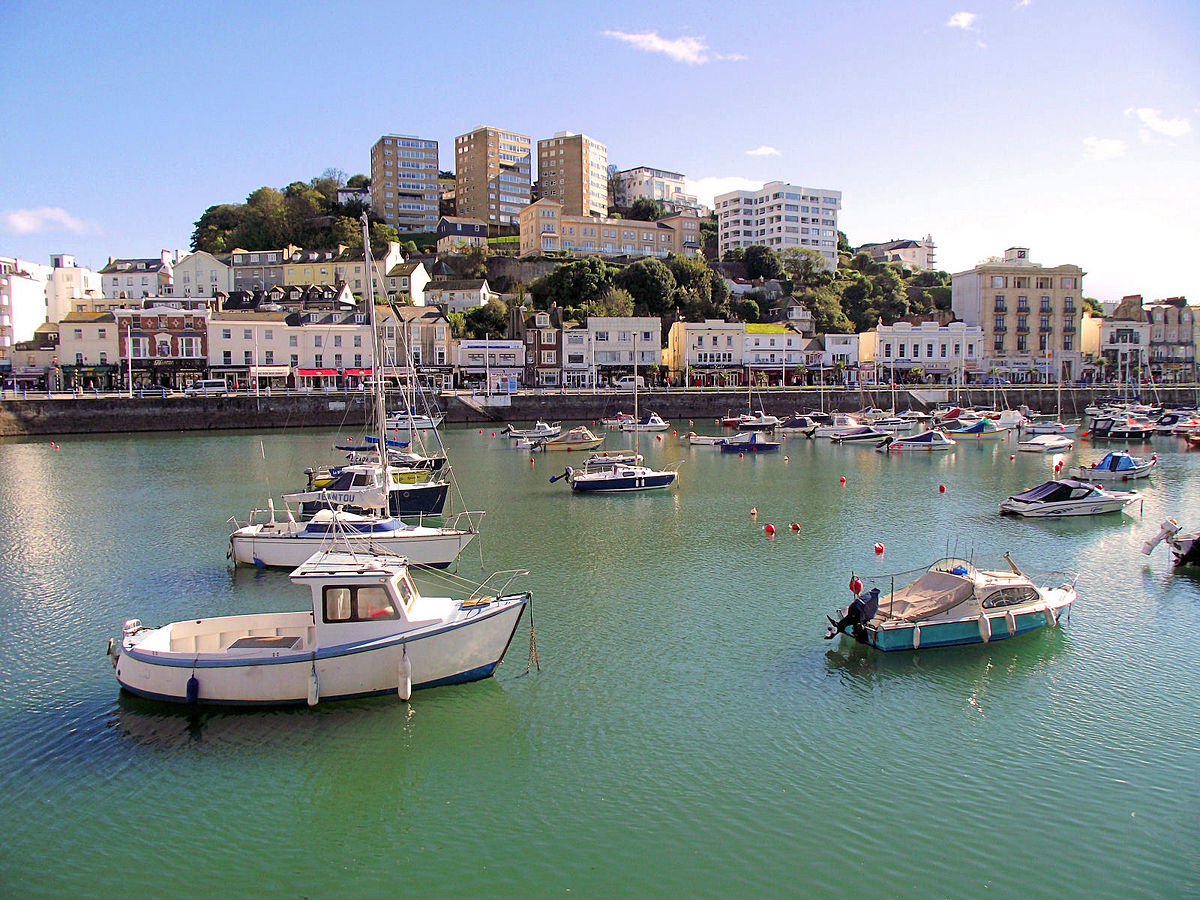

News, What's On Your Plate
The What’s on Your Plate community recipe book for West Exe Nursery School has now been printed and looks fantastic! It’s packed full of recipes rich in flavour and heritage, all contributions from the local community. It’s a true celebration of the diverse food cultures that make up the community of St. Thomas, Exeter. Some of the recipes were written down in Food Memory Notebooks which were left in cafes and community centres for people to write down their favourite recipes in.

The recipe book is the culmination of the What’s on Your Plate – The Food that Makes Our Community project, a National Lottery Heritage Fund project led by the West Exe Nursery School and supported by the HAP team. The project involved working with the St. Thomas community in Exeter, bringing people together to explore their history through the food they have made, eaten, enjoyed and shared. Children from the West Exe Nursery School visited Age UK to allow the youngest members in the community to learn about their food heritage from the oldest members of society.
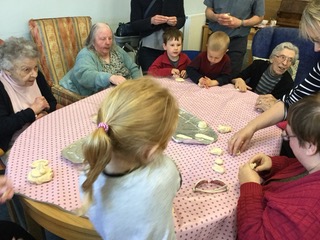
Volunteers also recorded oral histories from a diverse mix of people from the local community. Here’s some extracts from Betty, born in 1929, whose recipe for junket is in the recipe book:
“On Sundays we had breast of lamb – Mum would trim off the fat, make some stuffing, roll it up and bake it. Every now and then when we had an extra bit of money we could buy a piece of beef.”
“Always horse and carts – our baker used to come in with the horse and cart bringing fresh bread every day.”
“I look back on my childhood and think I didn’t go without because we didn’t have the things they have today.”
Betty’s recording and all of the other recordings for the What’s on Your Plate project will be archived at the Devon Heritage Centre.
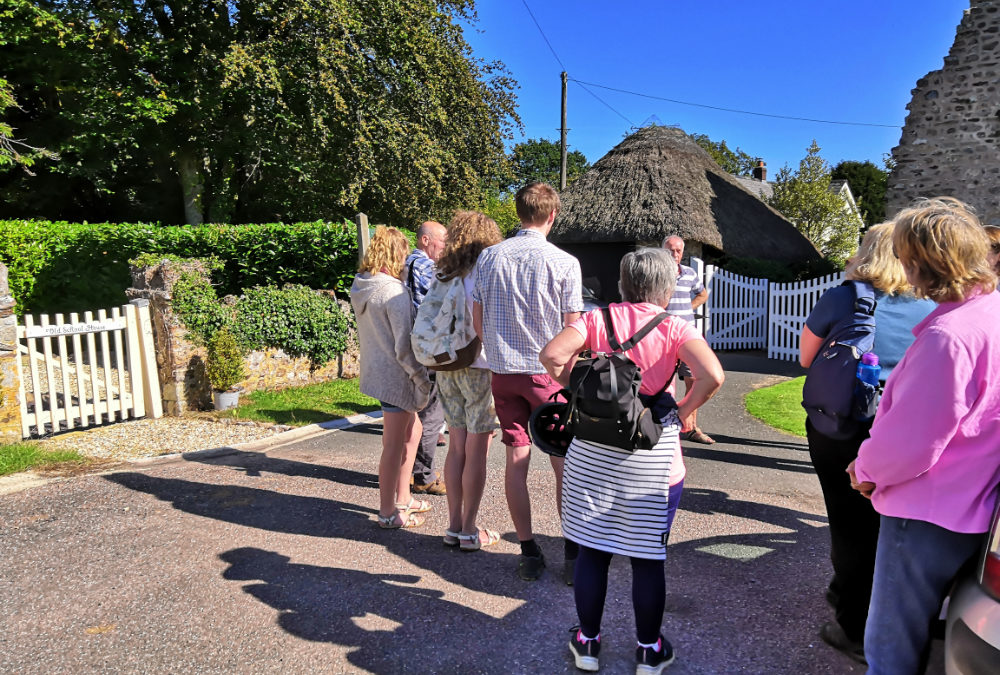
Blackdown Hills, Dunkeswell, News
We had a great day at our Dunkeswell Abbey celebration event in September, organised as part of our Discovering Dunkeswell Abbey project (funded by the National Lottery Heritage Fund). The sun shone and our volunteers turned out in force to help make the day a success. We’d timed our celebration event to run over the Heritage Open Days and had 50 people of all ages join us for tours, which were partially led by some of our fantastic Dunkeswell Abbey Ambassadors. Whilst everybody who came was local to the area (either within the surrounding villages or within Devon/Somerset), a surprising number had either never been to the abbey or had been but didn’t know anything about it.
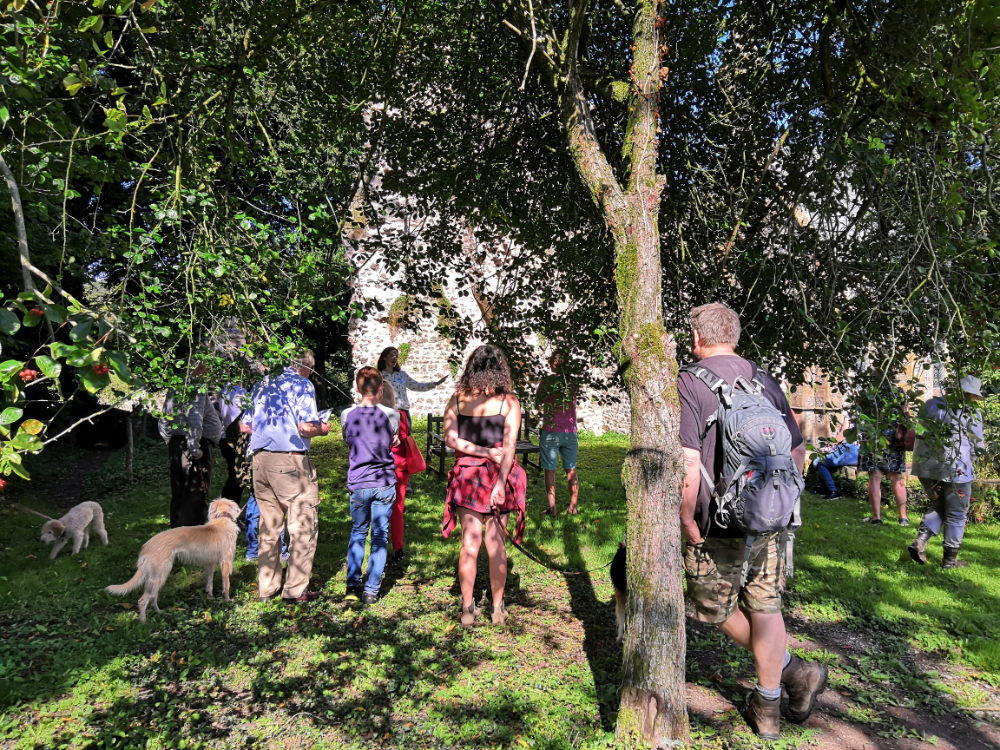
We were lucky enough to have been given a tour of the abbey and tour notes in advance by Charlotte Russell from Historic England. This allowed our volunteers to feel more confident in assisting with tours of the abbey and talking to visitors about the abbey and it’s historic context on the day. Volunteers also participated in, and helped run, activities. Riley, one of our younger volunteers, helped with tile tracing and talked to visitors about the tile decoration, pointing out patterns and motifs.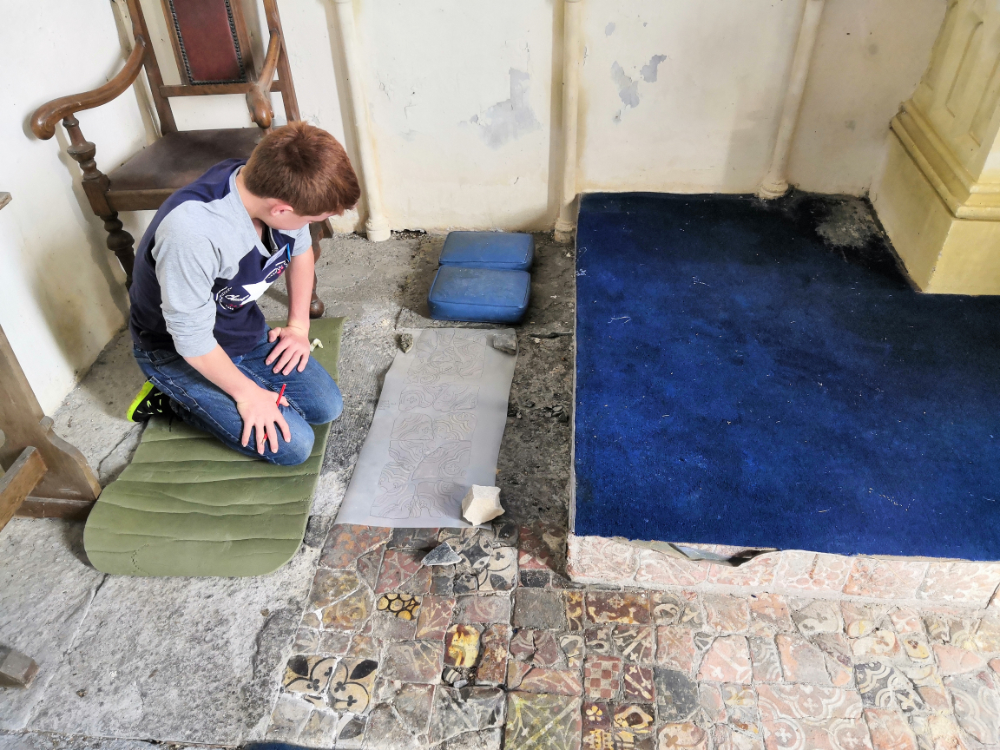
We got some great feedback from participants:
“ Extremely interesting tour of Dunkeswell Abbey and environ by knowledgeable and enthusiastic people who were very happy to take time to allow questions and explore ideas. It would be great to find out more about the abbey and how it affected the countryside.”
“ I’ve lived here 3 years and didn’t know much about the abbey at all. Really interesting to find out more about it.”
“Really interesting morning. Knew the abbey was here but always wasn’t sure what there was to see. Also not clear which bits are accessible. So to be shown was lovely. All volunteers and staff so friendly and helpful.”
“ I found the tiles and their amazing drawings on them very fascinating – they are 800 years old!” – primary school aged child
One of our participants found the tour really informative and wrote about her experience and findings on Dunkeswell Abbey on her building history blog here.
Here’s a few more pictures of what turned out to be a really successful day. Thanks to the National Lottery Heritage Fund for supporting this community project.
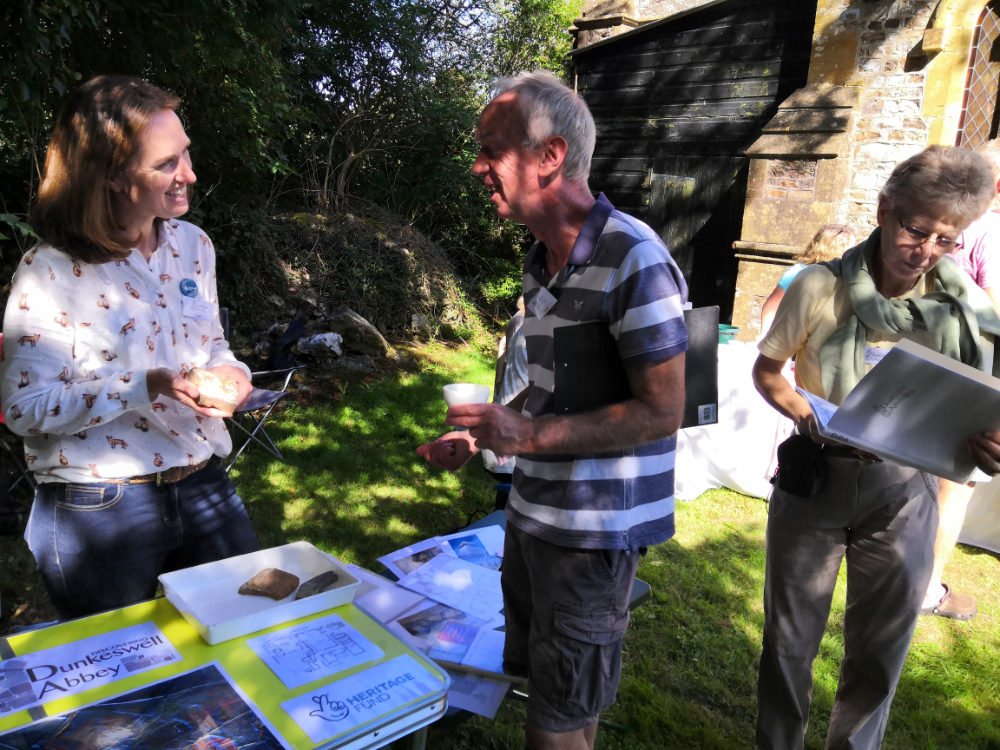
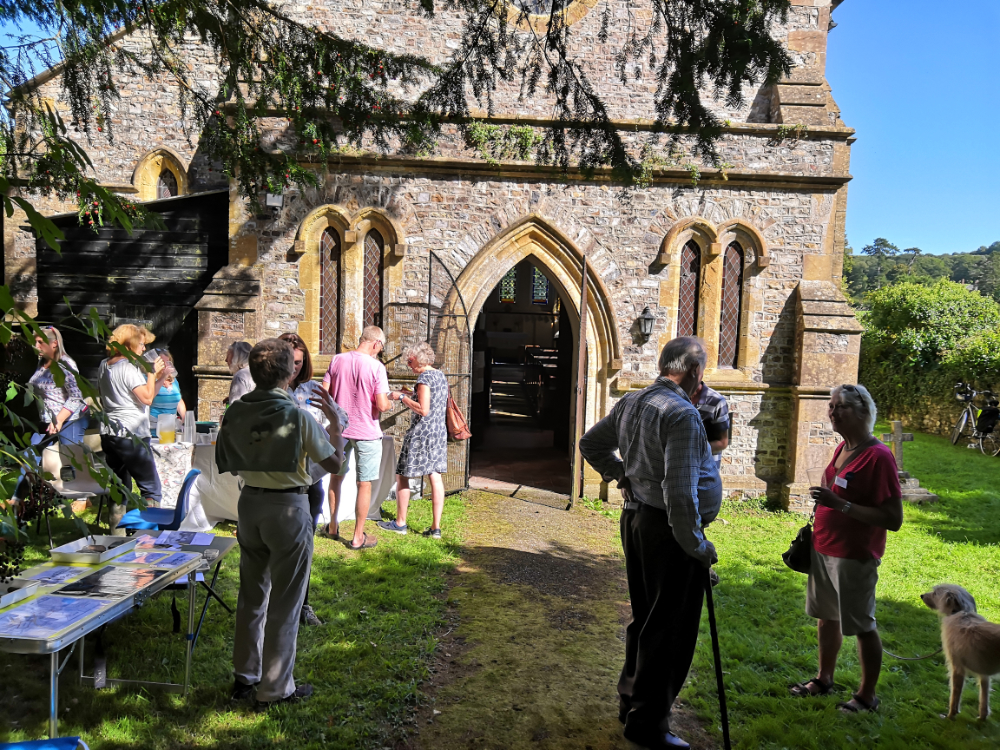
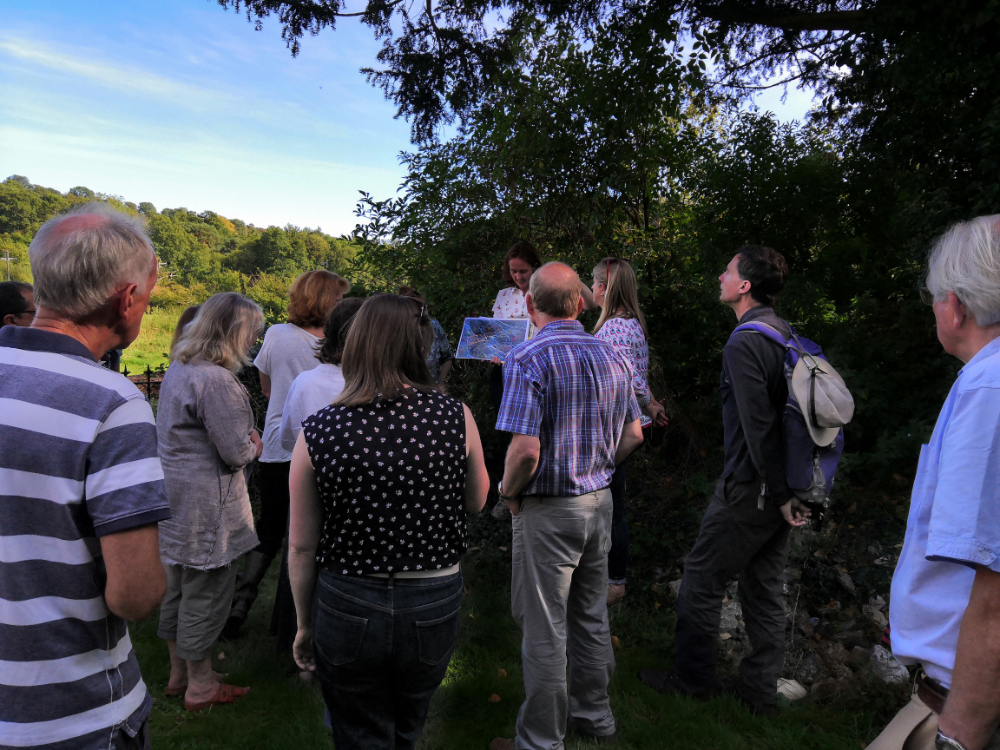
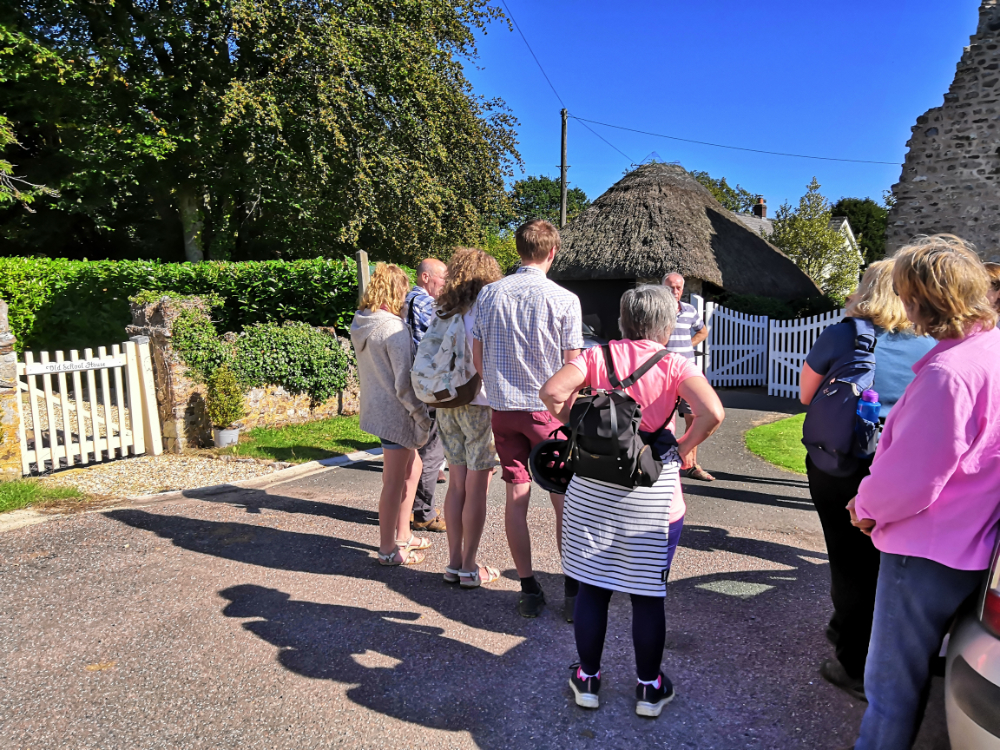
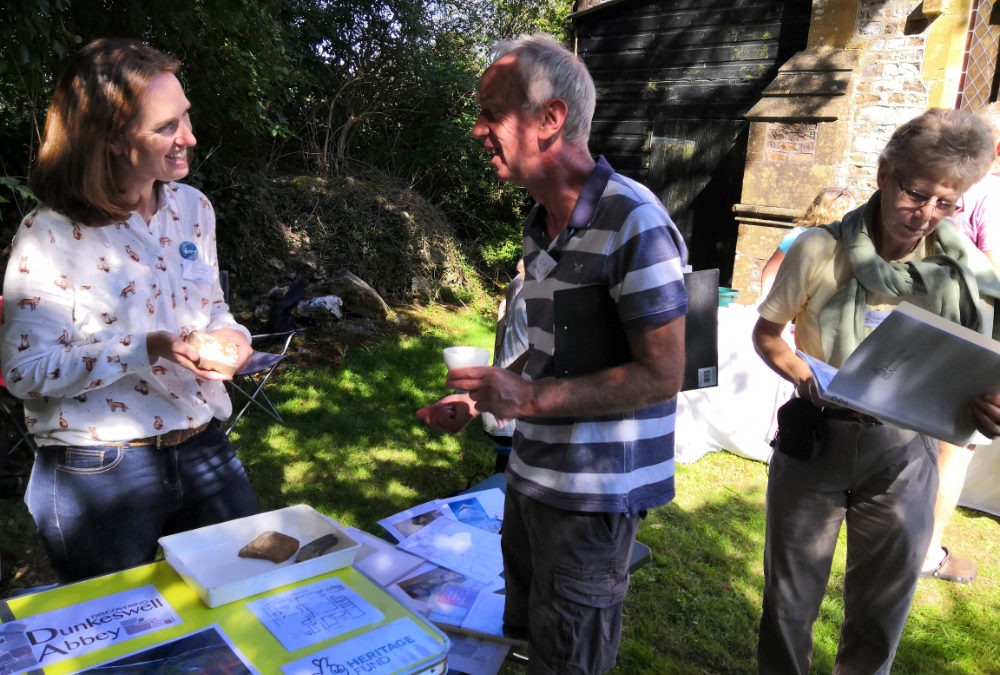
Blackdown Hills, Dunkeswell, News
We’re delighted to be organising three guided tours of 13th century Dunkeswell Abbey on September 14th for Heritage Open Day.
Join volunteer ambassadors from the Heritage Lottery Funded Discovering Dunkeswell Abbey project for a guided tour of the remains of this important monastic site, nestled in the Madford Valley in the Blackdown Hills. The Abbey was founded in 1201 by William Brewere as a colony of the mother house of Forde Abbey in Dorset. By the time of its dissolution in 1539, it had a substantial estate and was a major monastic house. Today, the gatehouse and fragments of the west range survive.
This special Heritage Open Day tour will help bring Dunkeswell Abbey to life. It will give you an insight into what Dunkeswell Abbey would have looked like and allow you to find out what life was like for the Cistercian monks who lived there. The Holy Trinity Church, built in 1842 on the site of the Abbey, will be open with its 13th century medieval floor tiles on view.
Booking Essential due to very limited parking on site. Please book (free) tickets here.
If you intend to arrive on foot or by bike please contact us as we should be able to accommodate you on a tour.
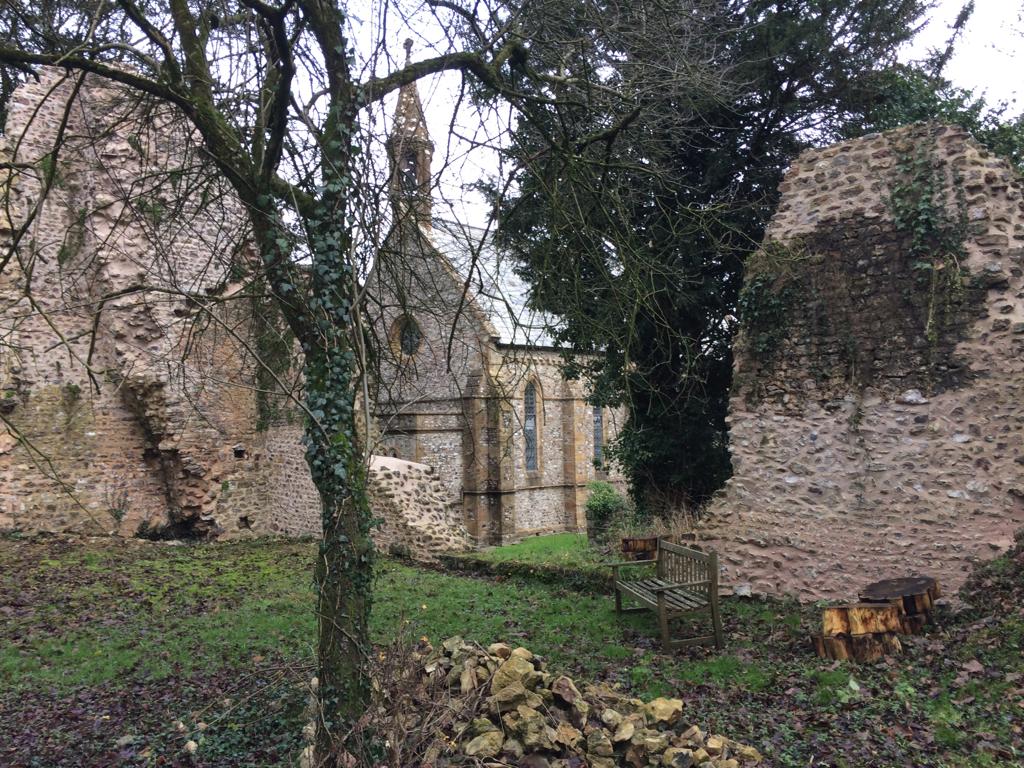
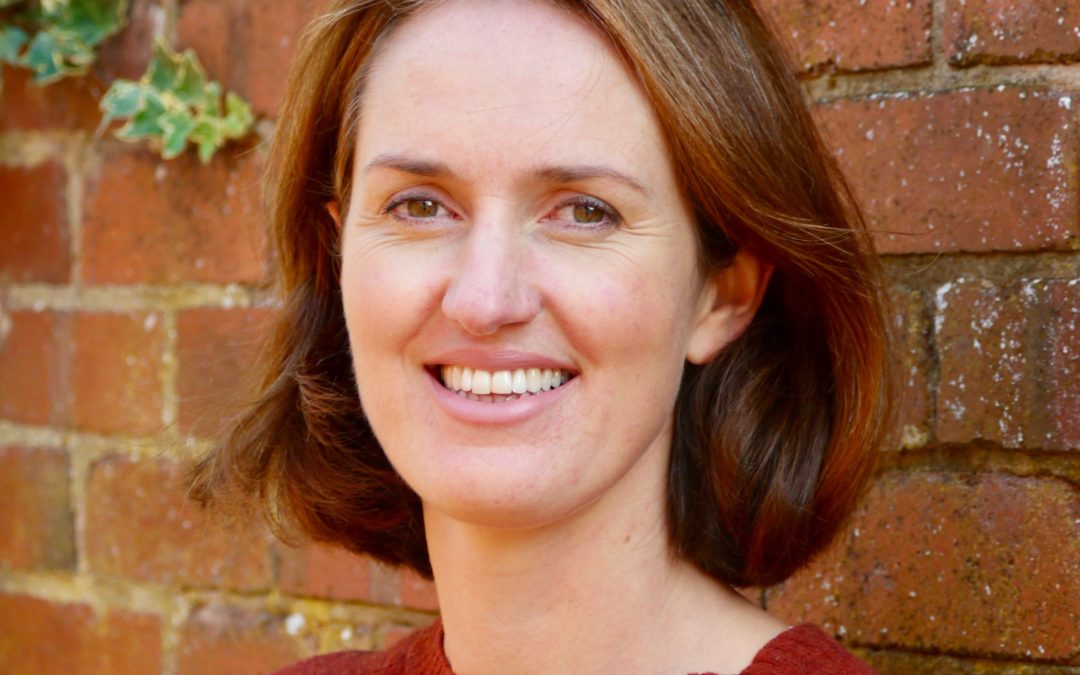
News
Lovely to see HAP director Catherine Farnell in the Exeter University Alumni news.
After initially studying and working as an archaeologist, Catherine did a PGCE at Exeter University in 2008. She shared with the university alumni team where her PGCE has taken her:
“Myself and fellow director, Marie Leverett, set up HAP as we wanted to bring together people who are passionate about heritage and want to share it with the wider community. We are lucky to live in the southwest and to be surround by a varied and interesting heritage. We believe that connecting communities with their heritage has the opportunity to provide people with new, fulfilling and enriching experiences.
Read the full article on the Exeter University website here.


